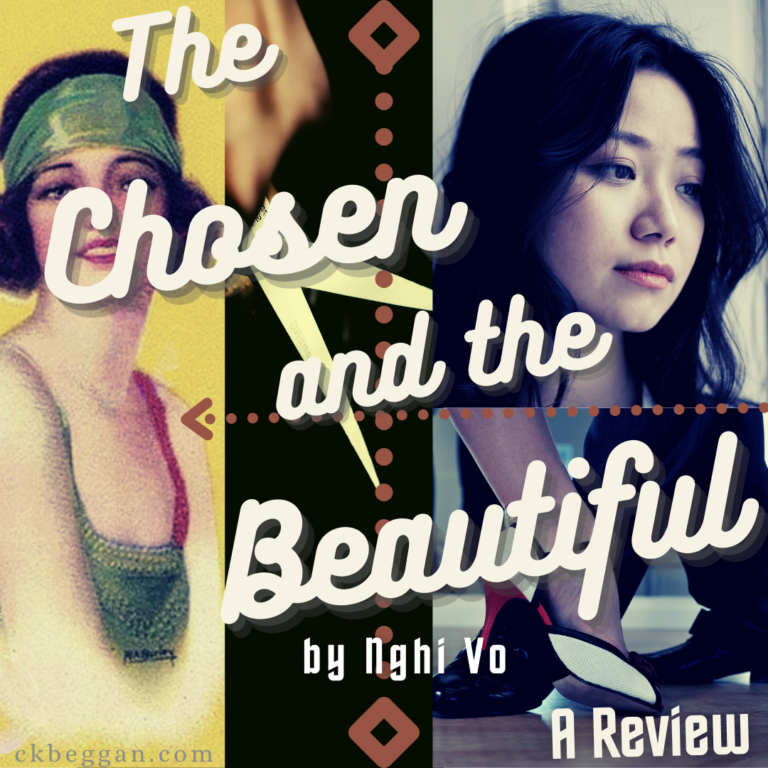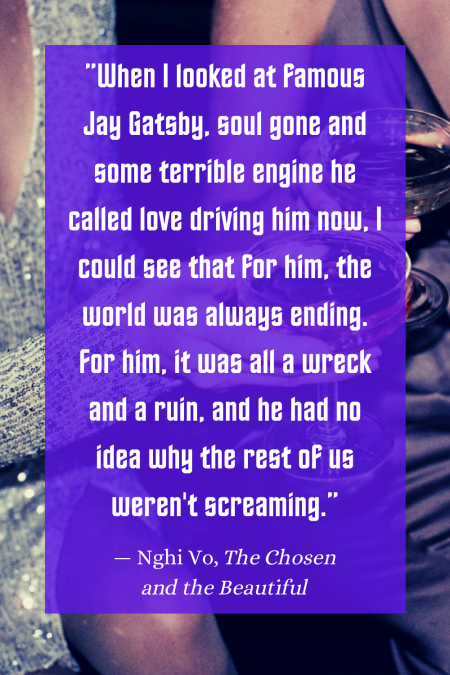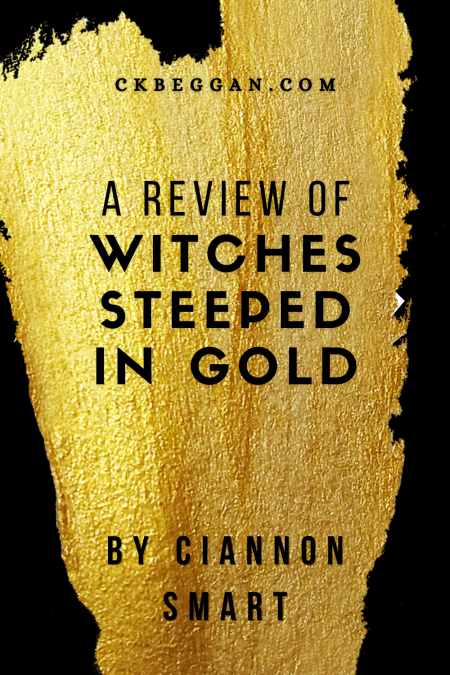
In The Chosen and the Beautiful, the author of The Empress of Salt and Fortune loosely retells Fitzgerald’s The Great Gatsby through the eyes of a very different Jordan. This Jordan, who is identified in the book blurb as queer (though she never labels herself), was adopted by the religious but not exactly well-meaning Bakers of Louisville from Tonkin (Vietnam). The opening scene, in which Jordan and Daisy literally float around the latter’s mansion on a hot summer day, positions The Chosen and the Beautiful on a creative, magical path that kept me turning pages.
Jordan occupies a ritzy and often lonesome world shaped by magic, parties, demons and xenophobia. Add to this her mysterious ability to make cut paper come to life and The Chosen and the Beautiful becomes a completely unique book. Change the names and places, and it would be one.
“There are women who will forgive a great deal for a moment of kindness from a handsome man, but Daisy and the other older girls who had taken me under their wings had taught me not to be one of them.”
–Jordan in The Chosen and the Beautiful
In Vo’s world of dark magic and recreational demon’s blood, the relationship between Daisy and Jordan is as complex as Jordan’s relationship with her country. Daisy leans on Jordan for unending support, often at great cost. Jordan, with the blasé attitude that helps her survive in a strict home and a city with few people who look like her, goes along with what Daisy wants, and often seeks out her companionship. Her involvement with Daisy’s tangled affairs becomes inevitable.
Certain scenes from The Great Gatsby are dropped into The Chosen and the Beautiful with faithfulness. Other intrusions by Gatsby, who may have sold his soul to attain wealth instead of becoming a bootlegger, take on a shape unique to the book.
Vo’s Gatsby himself is queer (again, no labels in the actual text), and something of a cad despite his love for Daisy; when Jordan meets him a magically hidden club where members of the LGBTQ community can be themselves, she isn’t shy about pointing out Gatsby’s recent encounter with a “rent boy” in crude terms. He sets his sights on Nick, too, putting him at instant odds with Jordan.
Gatsby’s other relationships and liaisons make his declaration of love for Daisy feel forced, but also color it as the obsession Fitzgerald may have intended it as (the original Gatsby has a naive quality, despite being a World War I veteran and a bootlegger, and though he never appears ruthless like Vo’s Gatsby, his innocence and belief in true love is more of a wish to turn back time than a reality). The scene where Gatsby knocks over the clock is even included in Vo’s version, though how he gets to Nick’s house is far messier and more awkward.
Needless to say, Nick’s character is also different. His relationship with Jordan is closer—Vo’s Jordan is also less detached, and less on a society pedestal, than Fitzgerald’s Jordan, making the attachment natural—though it’s no secret that Nick sees other people when he’s not with her. She does, too, but has far more feelings about his lack of devotion that he does, hinting at her vulnerability even as she claims she doesn’t care. I thought the eventual big reveal about Nick’s personality and nature effective and moving. Coupled with Jordan’s reaction, it made the book for me.
Vo also delves into other long-standing societal problems (namely xenophobia and racism), leaving immigrant Jordan, who is essentially a Dreamer, in a bad and unexpected position. Her interactions with other Vietnamese paper magicians are uncomfortable and leave her feeling like an outsider in two different cultures. Jordan also admits to avoiding Chinatown and other people who look like her, preferring to be a novelty on her own while fearing how white Americans, many of whom are hoping to expel foreigners with a pending bill, would view her in a cluster of Asian immigrants.
Jordan is really the best part of The Chosen and the Beautiful—and to be honest, I think she deserved her own story without Gatsby butting in, a tale inspired by The Great Gatsby rather than a retelling. By The Chosen and the Beautiful‘s poignant end, I wish there had been more Jordan, and maybe no Gatsby at all.
To learn more about this author, visit nghivo.com.






